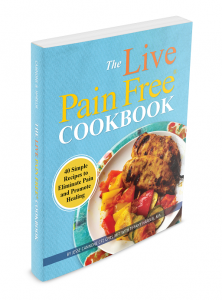For over 75 years, doctors and medical researchers have known about the importance of trace elements, including magnesium. Magnesium in particular is important in guarding against (or alleviating) ailments like heart disease, stroke, diabetes, arthritis and asthma.
Now researchers are finding a link between back pain and the balance between magnesium and calcium in diet.
While calcium has been front-and-center in most people’s minds when it comes to dietary supplements, calcium and magnesium need to be balanced out with each other. A diet that’s too rich in calcium and deficient in magnesium will result in contracted muscles that can’t relax — magnesium is important for the body to produce enough energy to feed the muscles. The hunter-gatherer diet of our ancestors had a balance of 1:1 when it came to calcium and magnesium; modern diets are more like 5:1 or even 15:1!
Contrary to what you might think, muscles that are worn out or short on energy contract, rather than relax. One of the other functions of magnesium is to insure that electrical signals are conducted properly through the body. A correct magnesium/calcium balance can calm nerve cells and head them off from firing pain signals to the brain.
Those contracted muscles are the root of a lot of back pain. Muscle spasms on both sides of the spine will result in a stiff, painful lower back that can be hard to stretch or work out well enough to achieve any real relief. Most lower back pain is caused by muscle spasm or strain, not by bulging disks or other spine-related problems.
Many are finding relief in a magnesium-rich diet. Foods that are rich in magnesium include:
– Nuts such as almonds, walnuts, pecans and brazil nuts
– Seeds such as sunflower and pumpkin
– Beans
– Greens
– Edamame
It’s also important to remember that heavy exercise or working in the heat will deplete magnesium. Drinking water by itself won’t restore magnesium in these situations — in fact, a shortage of magnesium is one of the things that can contribute to heat exhaustion or heat stroke.
Psychological stress can also deplete magnesium, by raising adrenalin levels. Studies have found that most men only take in about 80% of the minimum daily allowance of magnesium, while women come in at about 70%.
In cases of back pain, many physicians recommend a magnesium-rich diet or magnesium supplements. A 200 mg daily supplement of magnesium can make a noticeable difference for many who suffer from back pain.
In extreme cases, the supplement can be slowly pushed up to 600 mg without side effects. It may not be the be-all and end-all, but along with a proper diet, stress reduction, regular exercise and stretching, and regular bowel habits (the magnesium-rich foods like beans, greens and nuts can help there), magnesium can make a big difference.
Make sure magnesium is part of your big-picture approach to mind/body health, nutrition and diet.
 Improve Your Diet and Live Pain Free!
Improve Your Diet and Live Pain Free!
Discover the principles of pain-free living by improving your diet and get dozens of my favorite pain-relieving, healthy recipes in The Live Pain Free Cookbook.









I have slipped disc in l4,l5 region are there any medication that will heal fast
Hi Sourabh,
Thank you so much for your question. You may wish to consider our Book the 7 Day Back Pain Cure. The book discusses back pain and related issues, treatment options to consider, pain relief suggestions, action plans and other helpful information for coping with pain. Please read more about it via the link below
https://losethebackpain.com/products/7-day-back-pain-cure-book
Thank you. Our Best Wishes
Admin (The Healthy Back Institute)